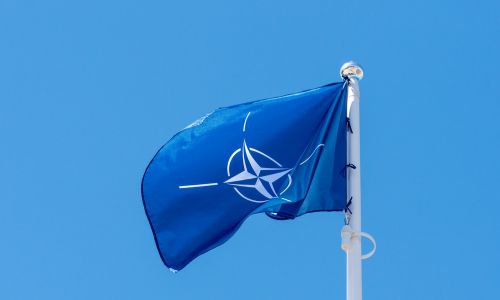Washington D.C. – A coalition of U.S. senators, led by Senator Katie Britt (R-Ala.), has recently raised concerns regarding NATO members’ defense expenditures and their implications for the United States’ military commitments within the alliance. Senator Britt, alongside Senators Tom Cotton (R-Ark.) and Dan Sullivan (R-Alaska), spearheaded a bipartisan effort involving 19 other Senate Republican colleagues. In a letter addressed to Secretary of Defense Lloyd Austin, they requested updates on how the Department of Defense evaluates U.S. activities in accordance with Section 1250 of the Fiscal Year 2024 National Defense Authorization Act (NDAA).
Section 1250 of the NDAA mandates the Secretary of Defense to consider whether NATO partners have achieved defense spending of at least 2 percent of their gross domestic product (GDP). This criterion becomes pivotal in determining decisions related to U.S. military basing, training, and exercises within the NATO alliance. Recent statements from Secretary Austin have underscored NATO projections indicating that only 18 member states are expected to meet this 2 percent target by 2024, a figure representing just over half of the organization’s members.
The senators emphasized that NATO is fundamentally a military alliance, not a charitable endeavor. They stressed the importance of all NATO members sharing meaningful responsibilities for collective defense efforts. Senator Britt, echoing sentiments expressed by her colleagues, highlighted the necessity for fair burden-sharing among alliance partners to uphold the alliance’s integrity and efficacy.
The letter, co-signed by a diverse group of senators including Rick Scott (R-Fla.), Marsha Blackburn (R-Tenn.), and Ted Cruz (R-Texas), among others, reflects a bipartisan consensus on the need for accountability within NATO. The signatories represent states spanning across the nation, illustrating the widespread concern among U.S. lawmakers regarding NATO members’ defense spending.
The initiative underscores the ongoing debate surrounding NATO’s financial commitments and the distribution of defense burdens among its member states. While the letter primarily focuses on accountability measures outlined in the NDAA, it also reflects broader discussions within the U.S. political sphere regarding the nation’s role in international alliances and the principles of collective security.
As Secretary Austin prepares to respond to the senators’ inquiry, the spotlight remains on NATO’s evolving dynamics and the implications of defense spending discrepancies among member states. The outcome of this dialogue may shape future U.S. policy decisions within the alliance and influence the trajectory of transatlantic security cooperation.









